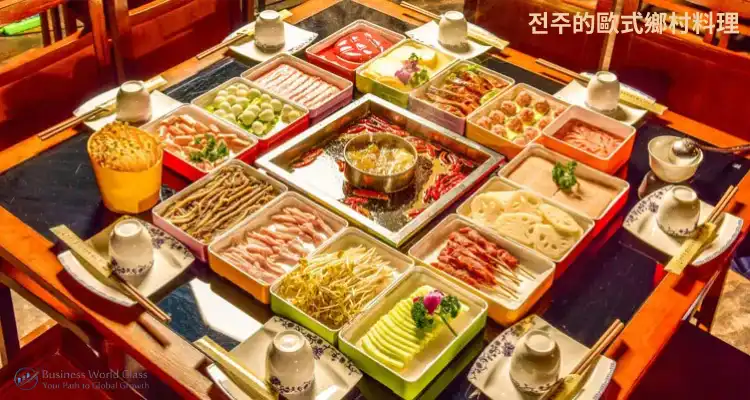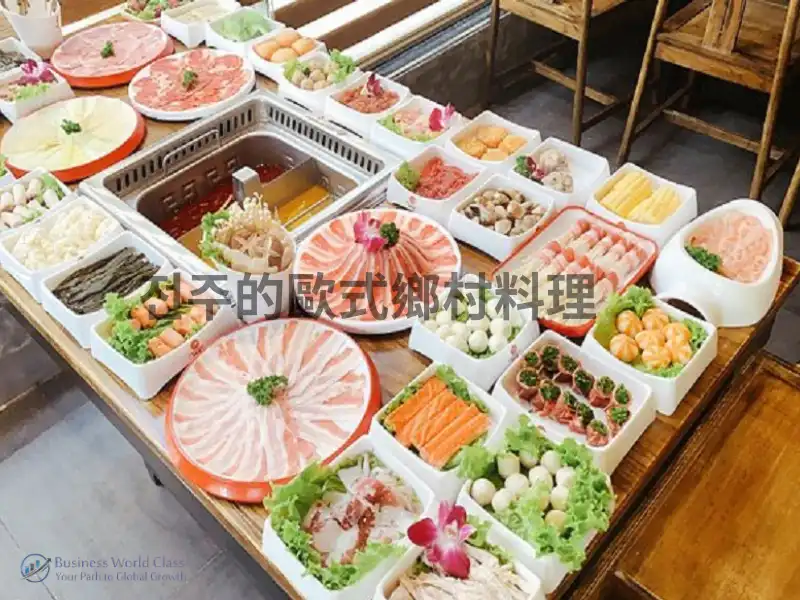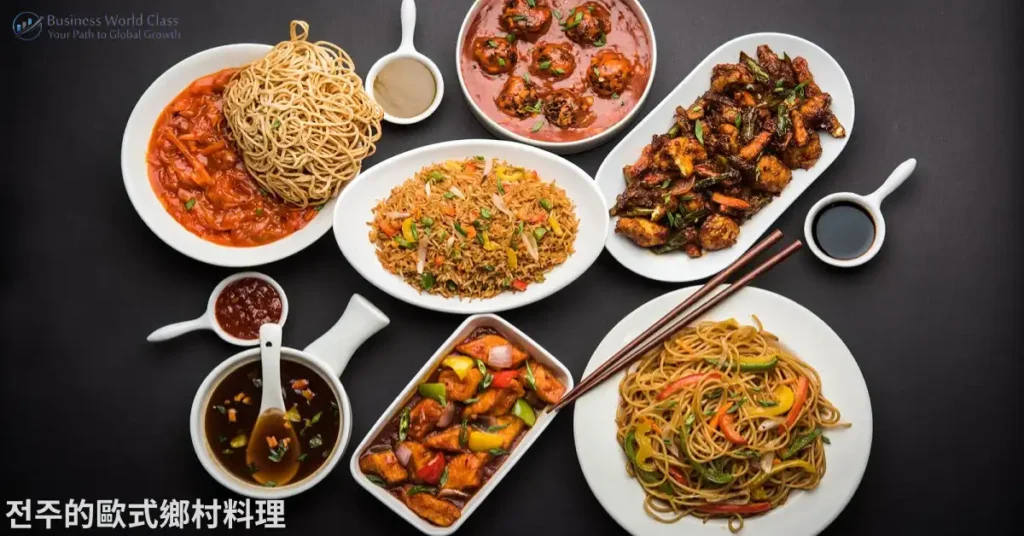Jeonju, located in the heart of South Korea, is famously known for its vibrant food culture, particularly its iconic bibimbap. However, the city’s culinary scene extends far beyond its traditional Korean roots, with European-inspired country dishes making their mark. This fusion of Korean and European cooking styles creates a distinctive dining experience that reflects both cultural exchange and culinary innovation. Let’s explore Jeonju’s unique take on European countryside cuisine or 전주的歐式鄉村料理.
The Rise of European Country Cuisine in Jeonju
Jeonju, often regarded as the food capital of South Korea, has always embraced international influences. With its rich history and cosmopolitan atmosphere, the city has become a hub for diverse food trends. Over the past decade, European country-style cuisine has emerged as a prominent culinary offering in the city’s upscale restaurants and cafes.
This cuisine, often associated with rustic, home-style dishes from countries like France, Italy, and Germany, emphasizes fresh, locally sourced ingredients and simple yet flavorful preparation methods. The focus is on hearty, comforting meals that reflect the agricultural traditions of rural Europe, making it a perfect fit for Jeonju’s emphasis on high-quality, local ingredients.

Key Features of European-Inspired Country Dishes
European country cuisine is deeply rooted in the use of seasonal ingredients, much like Jeonju’s emphasis on using local produce. Dishes are often slow-cooked or prepared using traditional techniques such as braising, roasting, or baking, ensuring rich flavors that evoke a sense of comfort and warmth.
Some of the popular dishes in Jeonju’s European-inspired country cuisine include:
1. Roasted Meats with Fresh Vegetables
Incorporating locally sourced meats and vegetables, roasted dishes are a staple in European country cuisine. Whether it’s a perfectly roasted chicken, tender lamb, or hearty beef stew, these dishes are served with a variety of seasonal vegetables like carrots. potatoes, and Brussels sprouts, often seasoned with fresh herbs and spices.
2. Homemade Breads and Pastries
Bread plays a significant role in European culinary traditions. In Jeonju, bakeries and cafes serving European-inspired country fare offer freshly baked sourdough, baguettes, and rustic rye loaves, alongside delicate pastries like croissants and Danish pastries. These baked goods often feature traditional European methods, with some bakeries even using wood-fired ovens to add a distinct smoky flavor.
3. Hearty Soups and Stews
Warm, comforting soups and stews, such as French onion soup or Italian minestrone, have found a place on Jeonju menus. These dishes are often prepared with slow-simmered stocks and broths, creating a depth of flavor that perfectly complements the cold winters in Jeonju. They are frequently served with crusty bread for dipping, allowing guests to savor every last drop.
4. Cheese and Charcuterie
The rich tradition of cheese-making and charcuterie is another feature of European country cuisine embraced in Jeonju. Local cheese varieties, along with an array of cured meats, are often served as part of a charcuterie board. This offering is popular in cafes and wine bars, where it pairs perfectly with regional wines or imported European wines.

The Fusion of Korean and European Culinary Traditions
What sets Jeonju’s European-inspired country cuisine apart is its seamless blend of Korean culinary principles with European techniques. While traditional European dishes are showcased, they are often enhanced with local Korean ingredients. Such as gochujang (fermented chili paste), kimchi, or fermented soy products. This creates a unique fusion that highlights the best of both worlds.
For example, a French-style cassoulet might be enriched with a touch of kimchi, giving it a spicy kick. Similarly, a hearty stew might incorporate Korean-style pickled vegetables, adding layers of complexity to the dish. This cross-cultural approach enriches the dining experience, allowing food lovers to explore new flavors and textures.
The Role of Jeonju’s Food Culture in the Rise of European-Inspired Cuisine
Jeonju’s food culture has always been about embracing diversity and experimentation. The city’s deep culinary history, rooted in traditional Korean flavors, provides a perfect foundation for introducing European-inspired dishes. Moreover, Jeonju’s status as a UNESCO Creative City of Gastronomy highlights its commitment to preserving and innovating within its food culture.
The rise of European-inspired country cuisine in Jeonju is a testament to the city’s dynamic and evolving food scene. It reflects the growing interest in international flavors and the desire to offer unique dining experiences that merge tradition and modernity.
Conclusion
Jeonju’s European-inspired country cuisine (전주的歐式鄉村料理) offers a delightful fusion of rustic European flavors with the bold, fresh ingredients that define Korean cooking. As Jeonju continues to evolve as a food capital, the city’s innovative take on global culinary traditions presents an exciting opportunity for food enthusiasts to experience the best of both worlds. Whether it’s a cozy, slow-cooked stew or a freshly baked loaf of bread, Jeonju’s European-inspired dishes offer a truly unforgettable dining experience. See More Business World Class




… [Trackback]
[…] Find More here on that Topic: businessworldclass.com/전주的歐式鄉村料理/ […]
… [Trackback]
[…] Find More on to that Topic: businessworldclass.com/전주的歐式鄉村料理/ […]
… [Trackback]
[…] Read More on to that Topic: businessworldclass.com/전주的歐式鄉村料理/ […]
… [Trackback]
[…] There you will find 21636 more Information on that Topic: businessworldclass.com/전주的歐式鄉村料理/ […]
… [Trackback]
[…] Find More to that Topic: businessworldclass.com/전주的歐式鄉村料理/ […]
… [Trackback]
[…] There you can find 59303 additional Info to that Topic: businessworldclass.com/전주的歐式鄉村料理/ […]
… [Trackback]
[…] Read More Info here on that Topic: businessworldclass.com/전주的歐式鄉村料理/ […]
… [Trackback]
[…] There you can find 57961 additional Info on that Topic: businessworldclass.com/전주的歐式鄉村料理/ […]